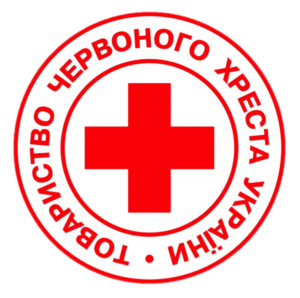
More than a thousand families have received monetary assistance from the Ukrainian Red Cross for rehabilitation.
“1,196 families from Kiev and Mykolaiv have received monetary assistance from the Ukrainian Red Cross for the rehabilitation of children and adults totaling more than 35 million hryvnias,” the Ukrainian Red Cross said on Facebook on Thursday.
The Ukrainian Red Cross provided cash assistance to patients undergoing rehabilitation at the National Children’s Specialized Hospital of the Ministry of Health of Ukraine “Okhmatdet” in Kiev and several rehabilitation centers in Mykolaiv under the Cash for Rehabilitation program supported by the British Red Cross. Each patient under the program received 30 thousand hryvnias.
“This amount was determined based on the results of a preliminary survey among families whose children or relatives are undergoing or need physical rehabilitation in medical institutions of the country, in particular, in the Okhmatdet hospital in Kiev and institutions in Mykolaiv,” said Elena Skrypnikova, head of the Innovative Financing Department of the Ukrainian Red Cross.
According to her, the categories of injuries and illnesses for which monetary assistance is provided have also been defined: rehabilitation after wounds received as a result of hostilities or the action of explosive objects; rehabilitation services due to congenital diseases; rehabilitation due to chronic diseases, in particular, oncological, cardiovascular and others.
The majority of children and adults who received cash assistance already have disability status or are in the process of obtaining it. In addition, families surveyed indicated a need for auxiliary aids such as wheelchairs, walkers, hand or foot orthoses.
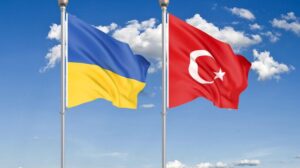
Deputy Minister of Defense of Ukraine Natalia Kalmykova and Ambassador of the Republic of Turkey to Ukraine Mustafa Levent Bilgen reached an agreement on cooperation in the field of rehabilitation of servicemen at a meeting.
“We are very grateful for the assistance provided to Ukraine by the Republic of Turkey. Now the list of such assistance has been expanded to include cooperation in the rehabilitation sector. A pilot project for the rehabilitation of military personnel has recently been launched. Its goal is to create an effective rehabilitation space with the participation of civilian and military health care facilities, social services, and local governments,” Kalmykova said.
As reported, the pilot project envisages, among other things, the creation of centers of excellence – institutions that will take the lead in rehabilitation.

ADONIS Medical Group has launched corporate rehabilitation programs for demobilized employees of companies.
According to the medical group’s press release, ADONIS rehabilitation programs include a wide range of services to restore the physical, psychological and social status of patients.
Specifically, the program includes preparation for prosthetics and rehabilitation after prosthetic fitting, rehabilitation after gunshot wounds, shrapnel fractures of bones, burn injuries, including skin repair, and restoration of movement amplitude for contractures to maximize mobility after injuries.
“Initiatives like this not only contribute to the physical recovery of military personnel, but also impact their overall well-being and integration into active life. Companies like MHP set an example of civic responsibility and caring for their employees,” the medical group reported.
At the same time, ADONIS noted that it is ready to “cooperate with other corporations that value their employees and want to help them during this important period.”
“The return of servicemen to peaceful life is a difficult journey that requires not only physical recovery, but also psychological and social support. We develop programs taking into account the requests of companies,” ADONIS emphasized.
ADONIS is a network of private medical centers for adults and children. ADONIS private clinic was founded more than 25 years ago. Its network includes seven branches in Kiev and the region, including a rehabilitation center and a stem cell laboratory. Doctors at the clinic’s branches provide treatment in 65 medical fields. Under war conditions, ADONIS branches with surgical units provide quality medical care to military and civilians.

ADONIS Medical Group has launched corporate rehabilitation programs for demobilized employees of companies.
According to the medical group’s press release, ADONIS rehabilitation programs include a wide range of services to restore the physical, psychological and social status of patients.
Specifically, the program includes preparation for prosthetics and rehabilitation after prosthetic fitting, rehabilitation after gunshot wounds, shrapnel fractures of bones, burn injuries, including skin repair, and restoration of movement amplitude for contractures to maximize mobility after injuries.
“Initiatives like this not only contribute to the physical recovery of military personnel, but also impact their overall well-being and integration into active life. Companies like MHP set an example of civic responsibility and caring for their employees,” the medical group reported.
At the same time, ADONIS noted that it is ready to “cooperate with other corporations that value their employees and want to help them during this important period.”
“The return of servicemen to peaceful life is a difficult journey that requires not only physical recovery, but also psychological and social support. We develop programs taking into account the requests of companies,” ADONIS emphasized.
ADONIS is a network of private medical centers for adults and children. ADONIS private clinic was founded more than 25 years ago. Its network includes seven branches in Kiev and the region, including a rehabilitation center and a stem cell laboratory. Doctors at the clinic’s branches provide treatment in 65 medical fields. In war conditions, ADONIS branches with surgical units provide quality medical care to military and civilians.
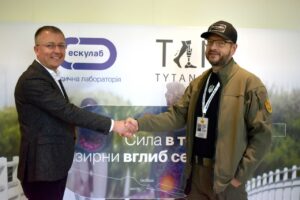
In response to the growing need for comprehensive support for wounded who have been seriously injured in the war zone, a modern rehabilitation hub is being built in Kyiv. This project was implemented thanks to the cooperation of the Center for Saving Lives, the Association of Osteo-Integrative Prosthetics and the Esculab Laboratories network.
“Our center was created to provide our military with the best possible assistance in recovering from severe injuries. We provide not only physical rehabilitation with the help of modern equipment, but also psychological support,” said Vyacheslav Zaporozhets, director of the Center for Saving Lives charitable foundation.
According to him, the project is unique in that it uses not only the most advanced technologies for physical rehabilitation, but also creates conditions for social adaptation and moral recovery of the military.
“We want every wounded soldier who has undergone amputation to be able to return to a full life,” emphasized Mr. Zaporozhets.
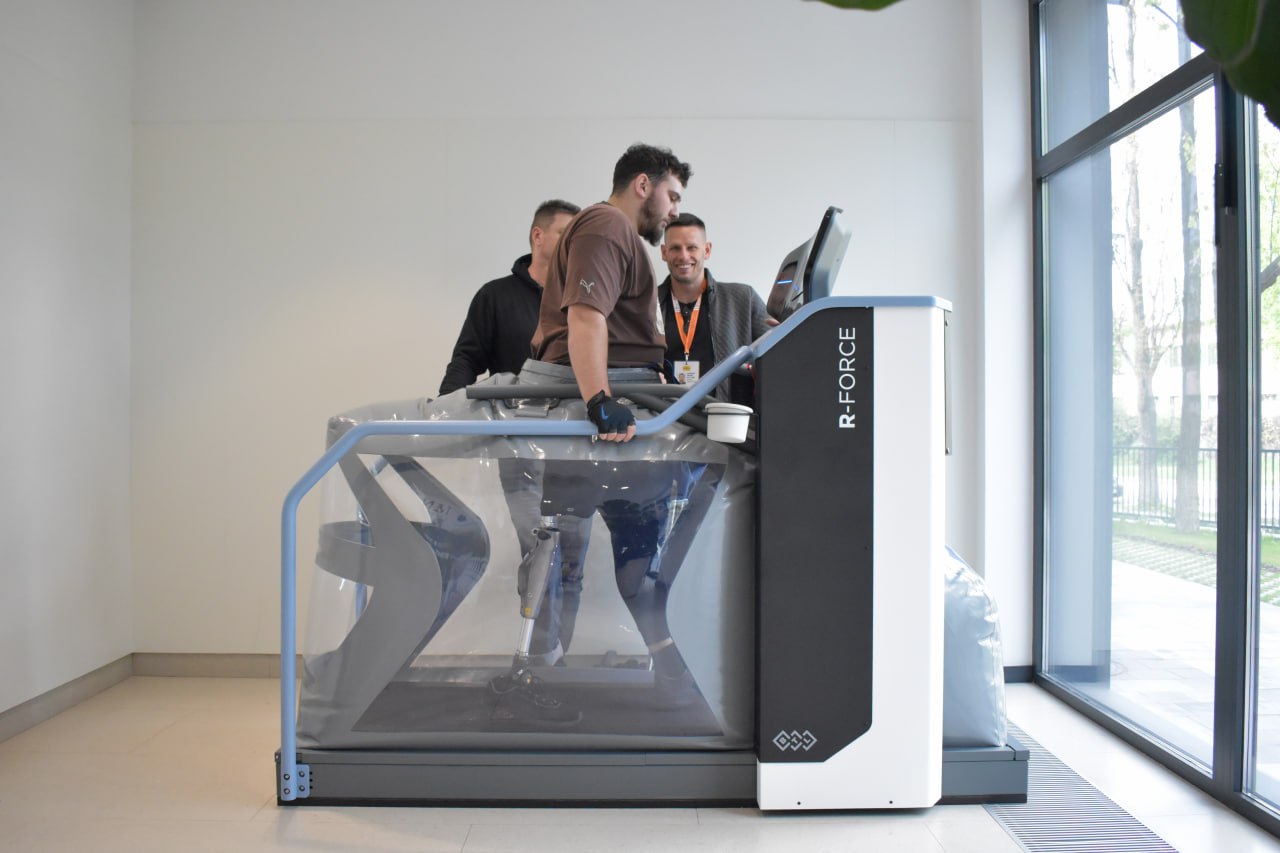
In his turn, co-founder of the Esculab laboratory, Serhiy Dyadyushko, also noted the importance of the work for the veterans’ recovery.
“The network of laboratories “Esculab” is not only about business. We are honored to be a part of this project. Our participation is not limited to financing; we are also actively involved in the process of education and training of specialists, which allows us to maintain a high level of services provided at the center,” he emphasized.
The center will be equipped to the highest standards, including anti-gravity walkways and group exercise spaces that allow patients to feel comfortable and safe during their rehabilitation.
The rehabilitation center is being built on a 500-square-meter area and includes a modern walking laboratory, a wrestling room, a cardio zone, a strength training zone, a dental office, two physiotherapy rooms, a meditation and sleep room, an occupational therapy kitchen, a mini shooting range, locker rooms and showers, etc. The center can accommodate 30 patients at a time.
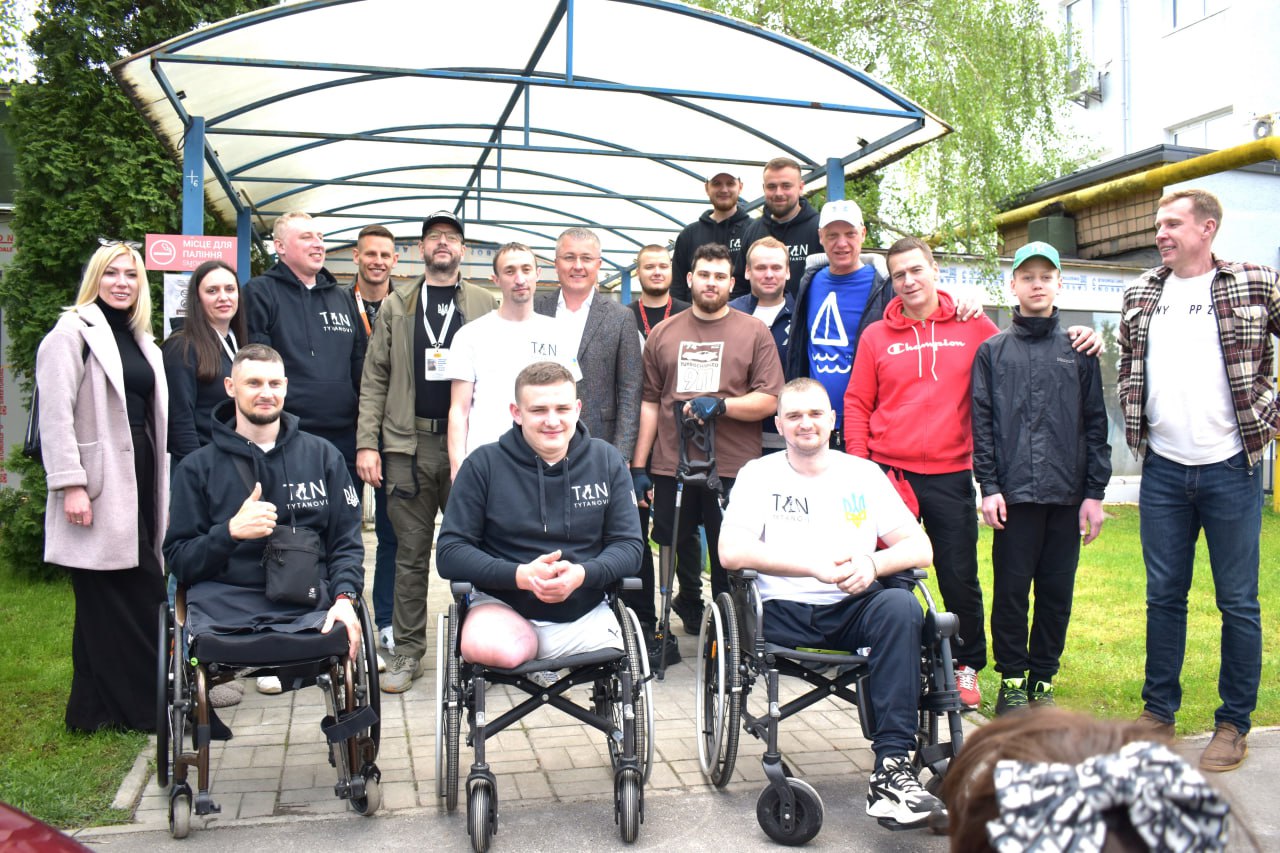
The project is part of a larger initiative aimed at creating a network of similar centers across the country to ensure access to high-quality rehabilitation services for all victims.
“Eskulab is a network of medical laboratories of international quality of diagnostic tests based in Lviv and has one of the largest networks of branches in Ukraine. The network includes more than 100 sampling points in the cities and towns of Lviv, Ivano-Frankivsk, Chernivtsi, Zakarpattia, Khmelnytsky, Ternopil, Rivne, Volyn regions and Kyiv. “Eskulab provides patients with the opportunity to take tests at their place of residence and receive highly accurate results. In February 2020, Esculab Medical Laboratory underwent a voluntary assessment of its measurement capabilities in accordance with the requirements of DSTU ISO 10012:2005 “Measurement management systems. Requirements for measurement processes and measuring equipment” to confirm technical competence and received a Certificate of Conformity of the measurement management system. Today, Esculab performs more than 820 types of laboratory tests.
You can learn more about the initiative to build a rehabilitation hub in the video on the Experts Club YouTube channel here:
Esculab, EXPERTS CLUB, MEDICAL_AID, MEDICINE, REHABILITATION, SERGIY_DYADYUSHKO, TYTANOVI, VYACHESLAV_ZAPOROZHETS

Experts Club hosted a training aimed at psychological rehabilitation of people affected by the consequences of war. This training was part of a larger project organized by the Experts Club in cooperation with the NGO Club of Experts and the ADONIS network of centers. The initiative aims to support and restore the mental health of people who are under stress or have been victims of psychologically traumatic events.
According to Maksym Urakin, founder of the Experts Club, the rehabilitation course will consist of 8 trainings in three stages. The first stage focuses on the diagnosis of stress and post-traumatic conditions using internationally recognized methods, such as the Impact of Traumatic Events Scale (IES-R), the Trauma Screening Questionnaire (TSQ) and others. The next step is art therapy, where participants have the opportunity to work with qualified psychologists, and the final stage is to evaluate the results and develop further recommendations.
“Our goal is to show that recovery is possible, and every affected person can find support and a path to recovery,” – emphasized Maksym Urakin.
Inna Prysyazhna, training leader and psychologist-consultant of the ADONIS medical centers network, emphasized that art therapy uses primarily creative methods, such as painting, sculpture, composing poetry, fairy tales, etc.
“All this is used to express inner feelings and fears. This not only improves mood, but also helps participants find inner harmony and self-confidence. Art therapy does not just treat, but provides tools for self-help and self-realization. It promotes the development of skills that allow you to better cope with everyday challenges,” the psychologist notes.
The project is funded by the Experts Club project’s own funds. In addition, the initiative actively interacts with the media and social networks to raise public awareness of PTSD and the importance of psychological rehabilitation.
“Experts Club is an analytical center with its own video studio and educational center. The art therapy project is implemented in partnership with the Institute of Psychology.